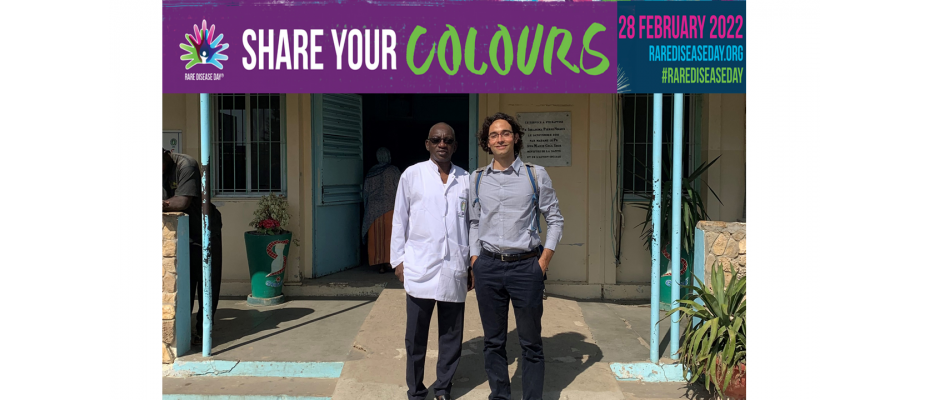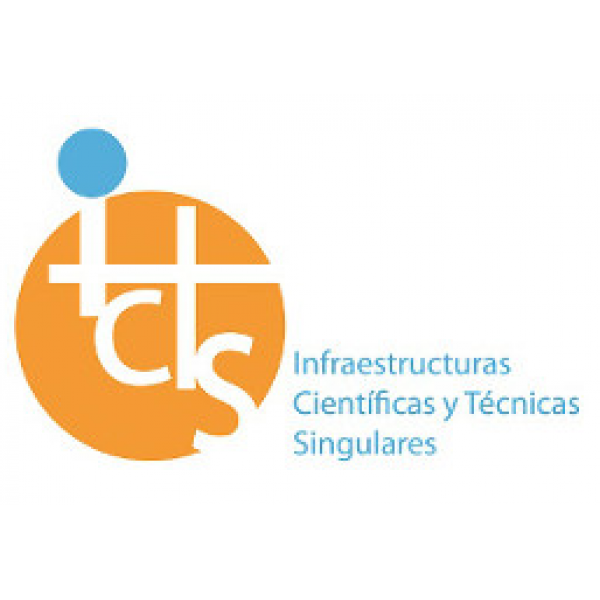
Barcelona, 28 Feb 2022.- Pedro Rodríguez is a Neurologist and Doctor in Neuroscience who went to Senegal six months ago for a placement at the Clinique de Neurologie de Fann in Dakar. Since then, Pedro has already seen more than 100 families and has sent DNA samples back to Barcelona to sequence and analyze their genomes.
His goal is to perform in-depth phenotyping and genomic analysis of a cohort of children and adults with neuromuscular and neurogenetic diseases in this West African country. Pedro is a Clinical Genomics Specialists at the Bioinformatics Unit of the Centro Nacional de Análisis Genómico (CNAG-CRG), led by Sergi Beltran, and his project is funded by the "Junior Leader" research programme of the La Caixa Foundation.
Around 300 million people live with a rare disease worldwide, half of which affect the nervous and peripheral systems. Neuromuscular and neurogenetic diseases (NMDs) are classified as rare diseases, and affect millions of children and adults worldwide. NMDs can be chronic, lead to lifelong disability, or premature death, meaning they carry a significant health burden with devastating emotional and economic consequences for the sick person and their environment.
In sub-Saharan Africa, most of these diseases are not well defined and their underlying genetic causes are unknown, resulting in people living with neglected cases of the disease, stigmatization, poor medical care and inadequate genetic counseling.
Pedro Rodríguez believes that the advances that have taken place in the field of molecular genetics and revolutionized the diagnosis of NMDs cannot be limited to just one part of the world's population, so he decided to undertake a project to connect West Africa with the available technological resources and appropriate networks in Europe, in order to be able to offer precise diagnoses to patients and families with rare diseases. The medium-to-long term objective of the project is to increase the awareness and public commitment to rare diseases in Africa, as well as to contribute to the training and capacity development of medical professionals and scientists in Senegal, which can overall reduce inequality in medical care.
“We must diversify genetics research to improve our understanding of the biological and genetic bases of rare diseases in populations around the world. It is very likely that the types of diseases in Sub-Saharan Africa are different from those in Europe and, therefore, if we do not characterize them, there is a risk that people living there will not benefit from the new personalized medicine treatments that are being developed based on genetic data collected in Europe”, says Pedro Rodríguez.
In Senegal, limitations to the diagnosis of rare diseases include a lack of infrastructure and access to sophisticated diagnostic channels such as genetic testing, as well as social factors surrounding, that translates into cases remaining undiagnosed. These limitations also result in poor reproductive counseling which is of particular concern in consanguineous populations, a feature that is characteristic of multiple regions and ethnic groups in West Africa, and in diseases such as NMDs which are mostly genetic in cause.
The samples collected in Senegal will be sequenced with the most cutting-edge instruments and technologies at the CNAG-CRG. The resulting data will be studied with bioinformatic analysis tools such as the RD-Connect GPAP (Genome Phenome Analysis Platform). Developed and hosted at the CNAG-CRG, the platform allows the analysis, storage and reuse of all genomic and phenotypic data and metadata in a standardized way, allowing experts to compare data from different patients and facilitate the maximum number of diagnoses. RD-Connect GPAP has already resolved more than 1,000 cases.
In addition to contributing to the advancement of the study of rare diseases on the African continent, the data obtained from the study will also feed international databases, which almost exclusively contain data from populations of European origin. The genomes from populations of African origin are the richest in genetic variants and, having a better understanding of this data will also help us to better interpret the genome of other populations worldwide, which can contribute to improving diagnoses, as well as identifying new genes and molecular pathways to develop new treatments in the future.
About the International Rare Disease Day
Rare diseases are called rare because each one affects just a few individuals, but, as a whole, they collectively affect 4-6 percent of the world population, estimated at 30 million people in Europe and 300 million around the world. To raise awareness about these diseases and to improve access to treatment and medical representation for individuals who suffer from them and their families, International Rare Disease Day is celebrated every year on the last day of February.
EL PAÍS - Por qué África es clave para impulsar el diagnóstico de enfermedades raras










